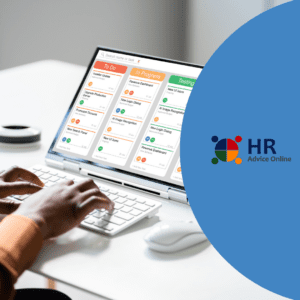Are you starting the new year with a new hire? Make sure the interview experience creates the best first impression for your candidates and supports the recruitment of the best candidate for the role.
Ideally you will conduct the first interview in person, however if this is not possible you don’t want to delay meeting strong potential applicants. So, look at options such as a video link via Teams or Zoom.
A clear and concise interview guide will help you run through the key areas to cover – skills, experience, interest in the role, career focus and culture fit. It is important to consider asking behavioural type questions that link directly to the key competencies you require for the position. These questions will help you to uncover past experience, action, and results as well as insight from each candidate.
Ask questions such as, “How have you handled a difficult client in your previous role?” This is directly linked to competencies such as customer service and problem solving and provides valuable insight as to the candidate’s way of working. Ideally you will have developed a set of key competencies for the role already.
Interviews are generally conducted by the manager (who the employee will report to) plus another individual(s) (an HR representative, or additional manager). During the interview, there may also be opportunities for potential co-workers and managers to meet with the candidate. During the interview the manager/ interviewers must take notes and then record the information for future reference. This will support the decision-making process, particularly where you may have a few strong candidates to consider.
To evaluate candidates’ ability to work well with others you may include questions that require a detailed response regarding successful projects or experiences with working in team environments, such as “Describe a particular difficult issue that you managed to overcome” or “Tell me about a time where you have assisted your direct manager to overcome a particular problem”.
Create the interview experience that will lead you to the right candidate. Consider the following when planning your next interviews:
- Create an organised and welcoming environment. Ensure you have a quiet and confidential room and that you make the candidate feel at ease, offer them a glass of water.
- Build rapport to enable the candidates to relax and be themselves. Seek out other attributes other than those you are likely to seek regarding skills and experience. What are they seeking from a role? Look for attributes that include commitment, contribution, growth capability and team fit.
- You are both interviewing each other – remember to sell your organisation and your personality and share your excitement about working there too.
- Don’t ask too many questions. Too many questions can become overwhelming and exhausting. Keep it simple and directly link to key competencies.
- Don’t forget to SMILE and make eye contact even when you are taking notes.
- Be transparent and clear about timelines, and what the recruitment process will entail. Let them know the next steps and when they may expect to hear from you.
An array of recruitment and selection resources are available to you from our resources library, to access some of these resources join HR Advice Online for free. For any question of support in recruitment and selection, please contact us at [email protected] or 1300 720 004.
Information in HR Advice Online guides and blog posts is meant purely for educational discussion of human resources issues. It contains only general information about human resources matters and due to factors, such as government legislation changes, may not be up to date at the time of reading. It is not legal advice and should not be treated as such.




